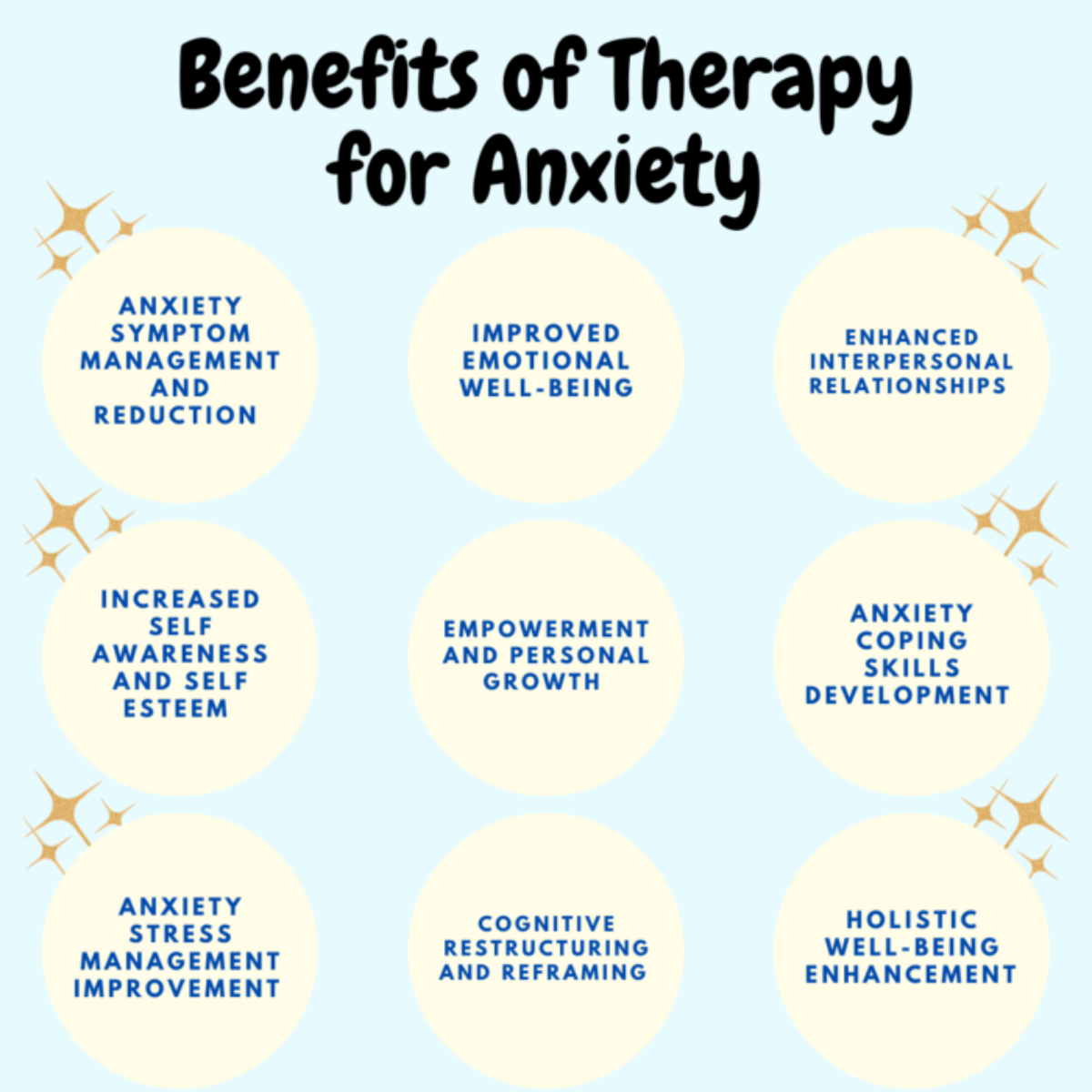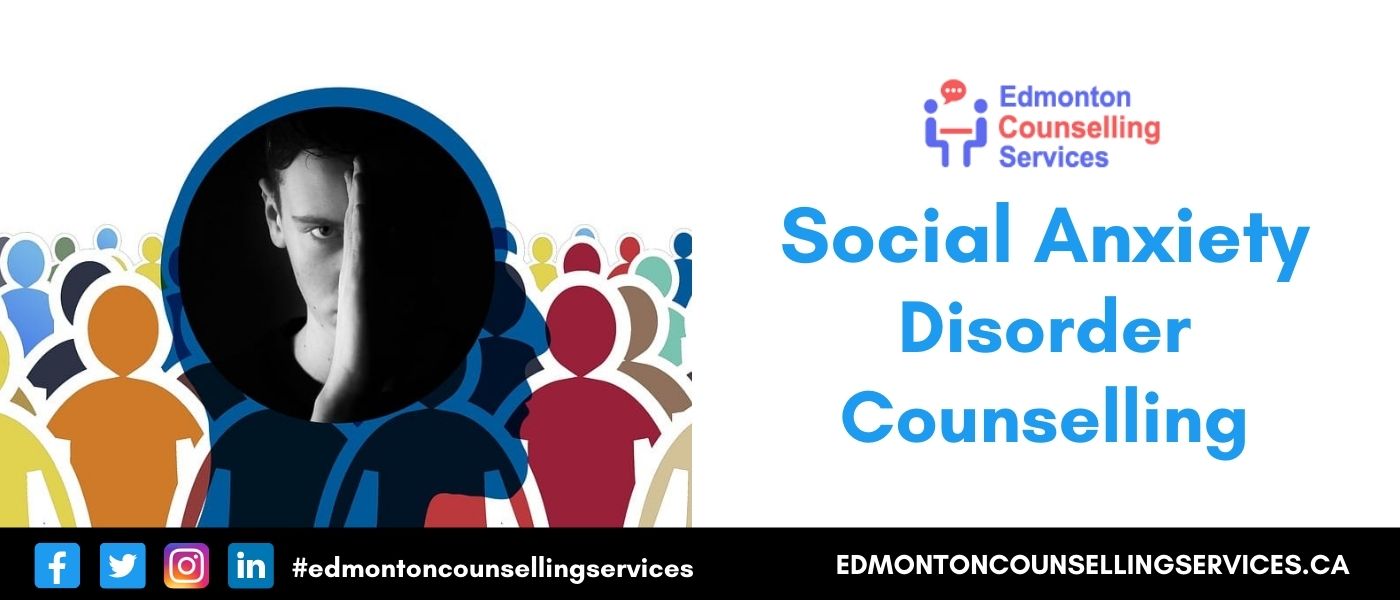Counselling for anxiety disorder available virtually and face-to-face near you
Counselling for anxiety disorder available virtually and face-to-face near you
Blog Article
Efficient Techniques in Therapy for Stress And Anxiety Condition: A Path to Healing
When dealing with anxiety disorders, you could really feel not sure and overloaded of where to turn. Effective counselling strategies can pave the way for recuperation, supplying you with the devices to navigate your obstacles. From cognitive-behavioral strategies to mindfulness techniques, each strategy uses special benefits. Recognizing exactly how these techniques collaborate can make a substantial difference in your journey. So, what are the crucial parts that will direct you towards lasting adjustment?
Comprehending Anxiousness Conditions: An Extensive Overview
When you consider anxiousness disorders, it's essential to recognize that they incorporate a series of problems characterized by extreme fear or concern. These conditions can show up in various methods, consisting of generalized stress and anxiety problem, panic condition, and social anxiousness disorder. You might experience signs like quick heartbeat, sweating, or problem focusing. It's common to feel overloaded, and these feelings can interrupt day-to-day life.Understanding the origin of anxiousness is crucial. They can come from genes, brain chemistry, or ecological factors. You may discover that specific scenarios trigger your anxiety, making it essential to determine these triggers.
Cognitive Behavior Treatment (CBT): Improving Idea Patterns

Mindfulness and Relaxation Techniques: Growing Present-Moment Awareness
Mindfulness and relaxation strategies assist you grow present-moment awareness, permitting you to manage anxiousness better. By concentrating on the present moment, you can damage without the cycle of fear and rumination that typically fuels anxiousness. Start by practicing deep breathing workouts. Breathe in slowly with your nose, hold for a minute, then exhale with your mouth. This straightforward technique can soothe your mind and body.Engage in mindfulness reflection by alloting a couple of mins each day to observe your thoughts without judgment. Take notice of your breath, experiences, and the sounds around you. You may likewise locate worth in modern muscle mass leisure, where you stressful and relax each muscle mass group, advertising physical and psychological ease.Incorporating these techniques into your everyday regimen can develop a better sense of control, decrease stress and anxiety signs and symptoms, and enhance your general wellness. Bear in mind, uniformity is key to experiencing the benefits.
Exposure Treatment: Encountering Fears Gradually
Exposure therapy assists you encounter your anxieties progressively, allowing you to develop self-confidence over time. By using progressive direct exposure techniques, you can slowly confront what makes you anxious while developing effective coping mechanisms. This procedure not just decreases your fear but additionally encourages you to take care of anxiousness a lot more successfully.
Steady Direct Exposure Strategies
When you challenge your concerns slowly, you can efficiently reduce anxiousness and reclaim control over your life. Steady exposure techniques entail encountering your concerns step by action, starting with less frightening circumstances. You might start by imagining the feared scenario, after that progress to watching images or videos connected to it. Ultimately, you can practice facing the fear in the real world, yet only when you really feel ready. This approach allows you to construct confidence as you relocate through each phase. Remember to speed on your own; rushing can raise stress and anxiety. Commemorate small triumphes along the road, as each progression equips you. By consistently applying these strategies, you'll find that your concerns begin to lose their hold on your mind.
Structure Coping Mechanisms
Structure reliable coping systems is essential for handling anxiousness, especially as you face your concerns gradually through exposure treatment. Beginning by identifying your certain fears and breaking them down into convenient actions. By doing this, you can slowly face each anxiety without becoming overwhelmed. For example, if you deal with social situations, begin by exercising tiny communications, like welcoming a neighbor.Alongside progressive direct exposure, integrate leisure strategies such as deep breathing or mindfulness to calm your mind before dealing with triggers. Keep a journal to track your progression and celebrate little triumphes. Surround yourself with supportive good friends or a therapist who can direct you. Keep in mind, it's a journey-- perseverance and perseverance will certainly enhance your coping systems, causing higher durability against anxiety.
Supportive Therapy: Structure Depend On and Connection
To successfully support someone with anxiety, establishing count on and rapport is important from the very initial session. You'll intend to produce a safe room where they really feel comfortable expressing their ideas and sensations without judgment. Active listening is key; program authentic rate of interest in what they share. Acknowledge their sensations and verify their experiences. It is very important to be empathetic, as this helps construct a link and motivates openness.Be constant in your method and preserve discretion to further enhance that depend on. Use open body movement and make eye call to communicate your listening. Keep in mind, your patience goes a lengthy way; structure rapport requires time, and it's important to value their speed. By fostering this helpful environment, you'll encourage them to engage even more fully in the restorative process, making it much easier for them to explore their stress and anxiety and work toward recuperation.
Group Treatment: Shared Experiences and Cumulative Healing
Team treatment can be a powerful device for those dealing with stress and anxiety disorders, as it enables people to share their experiences and find solace in the understanding of others. In this encouraging environment, you can reveal your sensations without fear of judgment. Hearing others' tales can stabilize your own experiences, making you feel much less alone in your struggle.Participating in group therapy assists you develop coping methods through shared understanding and understandings. As you listen to others, you may find new methods to tackle your anxiousness that you hadn't considered before.Moreover, the cumulative recovery that occurs in these sessions can promote a feeling of community, advising you that you're not my response encountering your challenges alone.Building links with others that understand your struggle can enhance your confidence and inspiration to confront your anxiousness. Team therapy develops a space where development and recovery become a common trip, empowering you to take actions toward recovery.
Incorporating Way Of Life Adjustments: Alternative Methods to Anxiousness Administration
While treatment provides important assistance, integrating way of life adjustments can considerably boost your capability to take care of stress and anxiety. Begin by incorporating routine physical activity into your routine. Exercise launches endorphins, which can boost your state of mind and lower stress and anxiety. Next off, take notice of your diet plan. Taking in a well balanced diet plan rich in fruits, vegetables, and whole grains can favorably affect your mental well-being. Don't ignore rest-- goal for 7-9 hours per night, as quality rest is essential for psychological regulation.Mindfulness techniques, such as reflection or yoga, can also aid you remain grounded and present. Consider reserving time each day to practice these strategies. Limitation caffeine and alcohol usage, as they can exacerbate anxiousness signs and symptoms. By making these holistic changes, you develop a stronger structure for taking care of anxiety, enhancing the advantages got from treatment. Remember, every tiny step rely on your course to recovery.
Regularly Asked Questions
What Are the Usual Physical Signs And Symptoms of Anxiousness Disorders?
Usual physical signs of stress and anxiety conditions consist of rapid heart price, lack of breath, muscle mass stress, sweating, and migraines. You could also experience exhaustion, wooziness, or intestinal problems, which can additionally complicate your day-to-day live.
The Length Of Time Does Counseling for Anxiousness Typically Take?

Counseling for anxiety generally takes a few weeks to a number of months, relying on your specific demands and progression. counselling for anxiety. You'll locate that regular sessions help you develop coping strategies and acquire insights into your anxiety
Can Anxiety Disorders Be Entirely Cured?

What Should I Perform in a Panic Strike?
Throughout an anxiety attack, concentrate on your breathing. Inhale deeply via your nose, hold for a moment, then breathe out basics slowly - counselling for anxiety. Ground on your own by naming items around you, and remind on your own it will pass
Exist Medications for Anxiety Problems?
Yes, there are several drugs for anxiety problems, including benzodiazepines and antidepressants. You ought to consult a health care professional to discover the right therapy strategy tailored to your details needs and scenarios for the best outcomes. When you assume regarding anxiousness disorders, it's crucial to recognize that they encompass a variety of conditions identified by extreme fear or concern. These problems can materialize in numerous methods, consisting of generalized anxiousness disorder, panic condition, and social anxiety problem. Building efficient coping devices is vital for taking care of anxiety, particularly as you face your concerns gradually through direct exposure treatment. Group therapy can be a powerful device for those dealing with stress and anxiety problems, as it permits people useful site to share their experiences and discover solace in the understanding of others. As you listen to others, you may uncover new methods to tackle your anxiousness that you had not thought about before.Moreover, the cumulative recovery that happens in these sessions can cultivate a sense of neighborhood, reminding you that you're not facing your obstacles alone.Building links with others that recognize your battle can improve your self-confidence and inspiration to face your stress and anxiety.
Report this page